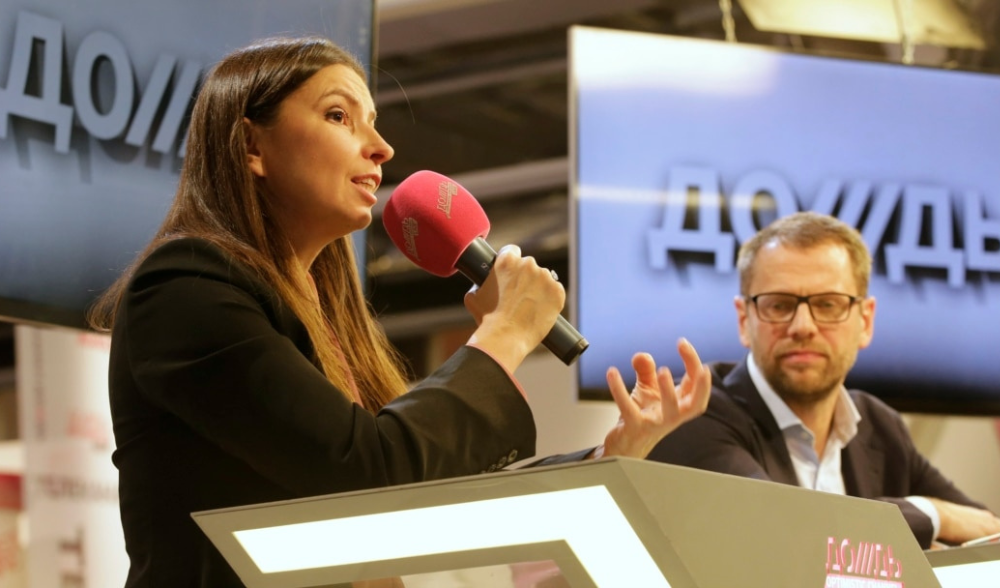RYAN BYRNE WRITES – As Russian and Ukrainian soldiers fight one another for control of Ukraine, another battle rages on both inside and outside of Russia: The battle for control of information.
In July, the banned television station TV Rain (Dozhd) returned to the airwaves-this time from outside of Russia’s borders. The station, featuring frequent criticisms of Russian President Vladimir Putin and often characterized as “liberal,” was shut down in early March of this year for its coverage of the Russian invasion of Ukraine.
Though TV Rain has now set up offices in several European nations and has begun streaming on major platforms (including YouTube), Loyola Marymount University Professor of History Nigel Raab told AMI in an interview that the station’s return is largely “symbolic.” While YouTube has yet to be blocked in Russia, many Russians still won’t be able to access the broadcasts because, as BBC News reported, the “only way most people in Russia will be able to access the channel’s output [is] via virtual private networks (VPNs).”
Still, TV Rain’s recent actions did not happen in a vacuum; Professor Raab insists that the station’s return could have an impact on the larger geopolitical situation facing Russia and its neighbors. Latvia, which hosts the revitalized TV Rain, has reportedly given an icy reception to the station. Why? As Raab points out, TV Rain’s return is a source of concern for the Russian government and could lead Russia to be more aggressive tactics towards its Baltic neighbor.
The early days of the invasion of Ukraine brought to the forefront the most draconian censorship measures the Putin regime has undertaken against independent media outlets: a ban on the use of the word “war,” for example, and ultimately the banning of most of those independent media outlets. “It’s only gotten worse” since then, Professor Raab said. Indeed, many international observers have pointed to more intense rhetoric on state-controlled television. As the New York Times recently reported, the emphasis of coverage has shifted from the invasion of Ukraine to portraying “the United States [as] the main antagonist, with Europe and NATO its lackeys.” Stanislav Kucher of Grid News pointed out that of late, “veiled threats to use nuclear weapons [have gotten] new life.” Raab, though, said that most Russians now lack interest in media coverage of the invasion because “the only show [they] are getting is the Ukraine show, which is the same all the time.”
While it may be the case that most Russians are not tuned into the propaganda that their government puts on the airwaves, it appears that most Russians still cannot access accurate reporting about the war in Ukraine. The recent censoring of Novaya Gazeta’s revitalized paper from abroad demonstrates that as independent media flees Russia, the drawbridge will close behind them. Now, all that TV Rain and other exiled outlets can do is report the facts and hope Russians hear them.
Ryan Byrne is a contributing writer to Asia Media International.


2 Replies to “RUSSIA-UKRAINE WAR: EVEN AS ‘TV RAIN’ RETURNS, RUSSIAN MEDIA SITUATION REMAINS GRIM”